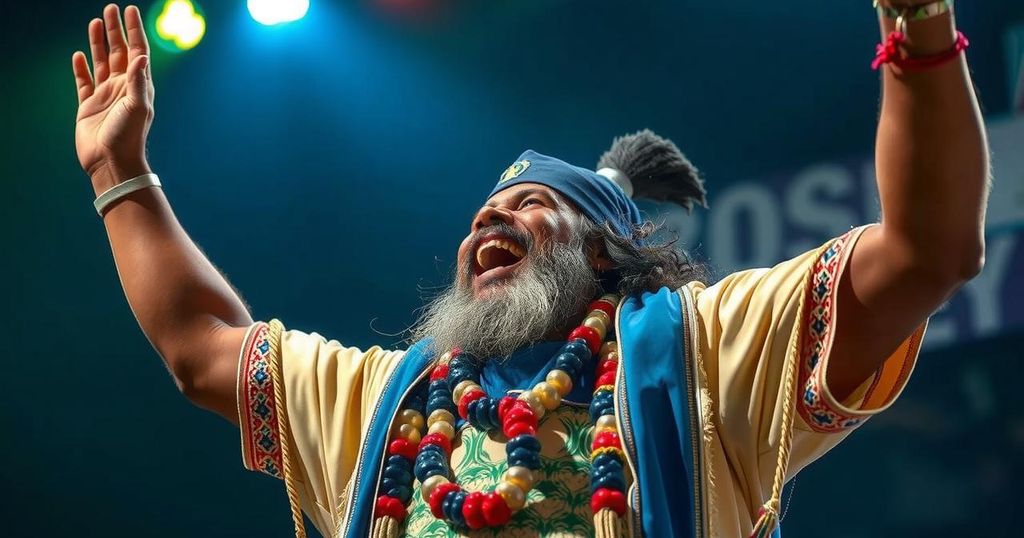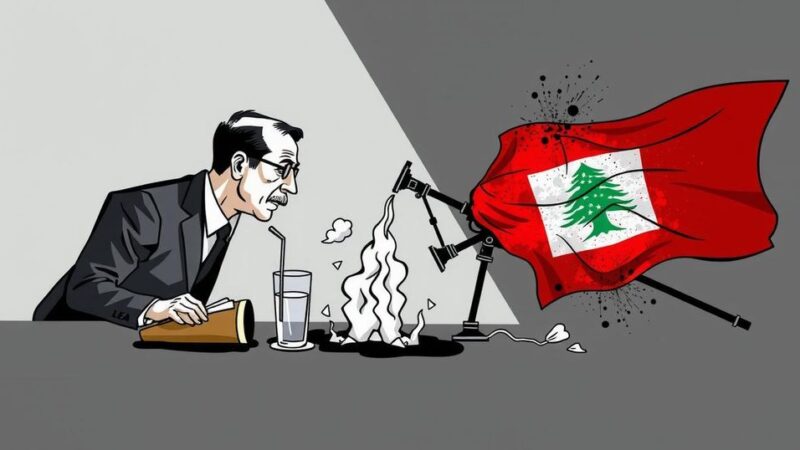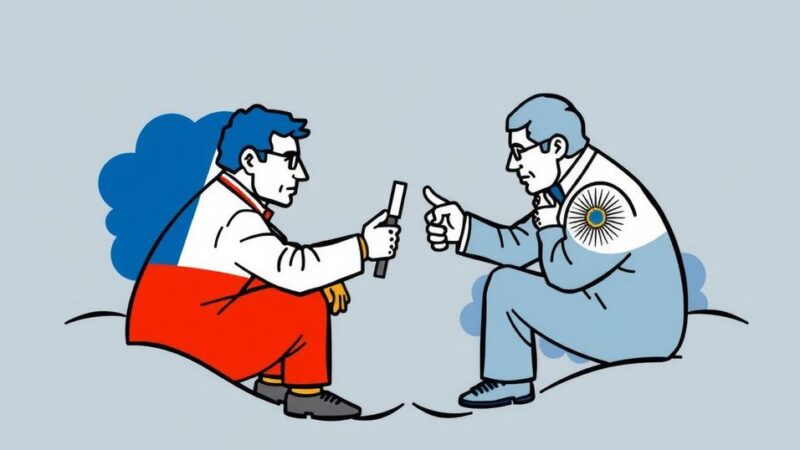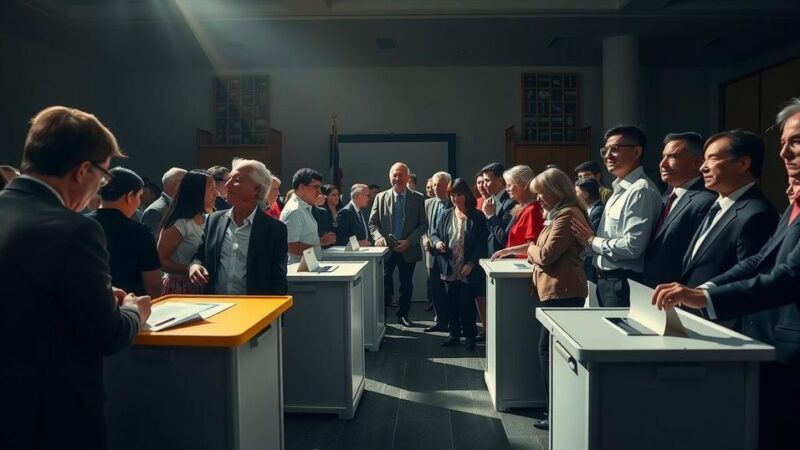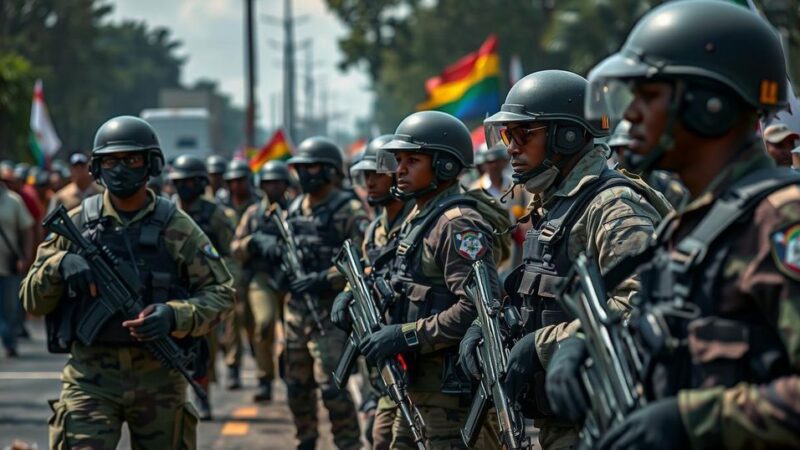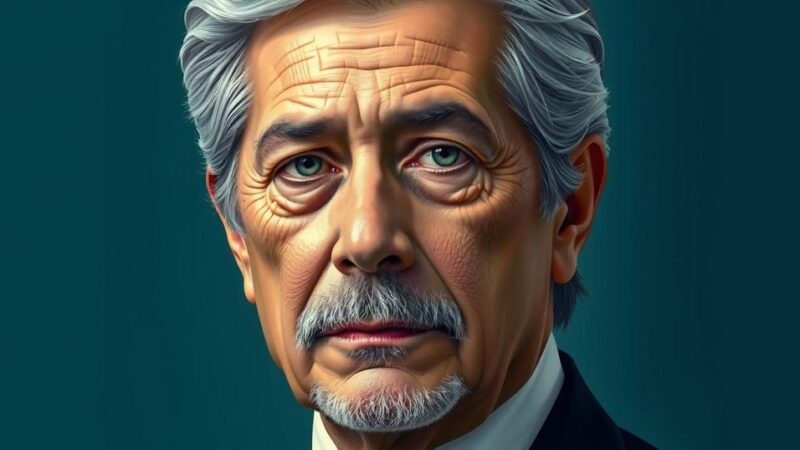Yamandú Orsi has been elected as the new President of Uruguay, returning the Broad Front party to power after a five-year absence. He won the runoff election against Álvaro Delgado with 49.8% of the votes in a high-turnout contest. Orsi’s victory follows a significant legacy of social reforms under previous Broad Front administrations, and he faces challenges such as addressing rising poverty and crime in the country.
In a significant electoral victory, leftist candidate Yamandú Orsi has been elected as the President of Uruguay. Orsi’s triumph marks the resurgence of the Broad Front party, which previously governed for 15 uninterrupted years until the center-right National Party took power in 2019. The 57-year-old former historian and mayor secured approximately 49.8 percent of the vote against Álvaro Delgado, the candidate who succeeded the outgoing president. This election aligns with a global trend favoring opposition candidates. Notably, voter turnout approached an impressive 90 percent, reflecting Uruguay’s mandatory voting laws.
Delgado, having served as an ally to previous President Luis Lacalle Pou, accepted his defeat gracefully and acknowledged the efforts of his supporters while emphasizing the difference between losing an election and being defeated. Lacalle Pou, who cannot seek re-election, congratulated Orsi on social media and offered assistance during the transition. Orsi, set to take office in 2025, promises to unite the nation following this closely contested election.
The Broad Front’s governance was known for notable achievements in poverty reduction and progressive social reforms, particularly during the presidency of José “Pepe” Mujica. Under Mujica’s leadership, significant policies such as the legalization of abortion, same-sex marriage, and recreational marijuana were enacted. These reforms positioned Uruguay as a model of effective left-wing governance in Latin America. Orsi’s approach will maintain continuity through moderate policies aimed at further revitalizing the nation’s economy and addressing social issues such as childhood poverty and organized crime. He seeks to foster a more integrated society, stating, “I will be the president who calls for national dialogue again and again, who builds a more integrated society and country.”
There are challenges ahead for Orsi, especially in tackling the rising youth poverty rate and the increase in crime associated with gang activities, alongside potential reevaluations of trade agreements. Analysts have attributed Delgado’s electoral loss to a campaign that focused more on negative criticisms of the Broad Front rather than presenting a compelling vision for the future. Orsi has emphasized the need for unity among different sectors of Uruguay’s populace to collectively build a better nation.
Yamandú Orsi’s election as President of Uruguay is a pivotal moment, marking the return of the Broad Front party following a five-year interval in opposition. The Broad Front’s previous administration had a profound impact on society, achieving notable reductions in poverty and instituting progressive policies which are even heralded internationally. The outgoing administration under President Lacalle Pou represents a shift towards center-right politics, thus setting the stage for this closely contested election between Orsi and Delgado, whose campaigns reflected broader national sentiments. This victory illustrates a notable trend of leftist movements gaining traction in various nations globally, further emphasizing the political dynamics at play in contemporary democracies.
In conclusion, Yamandú Orsi’s election as Uruguay’s president signals a return to leftist governance with the Broad Front party at the helm. His commitment to unity and moderate policies is aimed at addressing significant challenges such as poverty and crime while following the progressive legacy of his predecessors. The election outcome also underscores the changing political landscape in Uruguay and reflects broader global electoral trends favoring opposition parties. The emphasis on national dialogue and inclusivity is poised to shape Orsi’s administration as he prepares to lead the nation toward a more equitable future.
Original Source: www.newsweek.com
